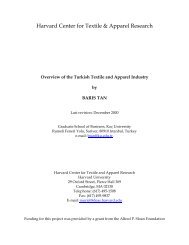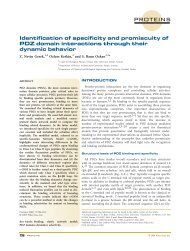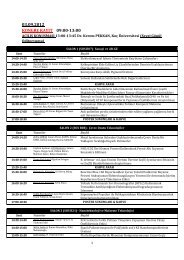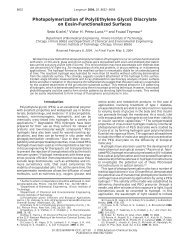Koc University Economics 333-Game Theory and Strategy Spring ...
Koc University Economics 333-Game Theory and Strategy Spring ...
Koc University Economics 333-Game Theory and Strategy Spring ...
You also want an ePaper? Increase the reach of your titles
YUMPU automatically turns print PDFs into web optimized ePapers that Google loves.
<strong>Koc</strong> <strong>University</strong><br />
<strong>Economics</strong> <strong>333</strong>-<strong>Game</strong> <strong>Theory</strong> <strong>and</strong> <strong>Strategy</strong><br />
<strong>Spring</strong> 2008<br />
Instructor: Seda Ertac (sertac@ku.edu.tr, CAS 211, 388-1880)<br />
Class Time <strong>and</strong> Location: Tue-Thu. 12:30-13:45, SOS B10<br />
Office Hours: Tue-Thu. 11:00-11:30 <strong>and</strong> 14:00-15:00<br />
Teaching Assistant: Serap Bulbul (sbulbul@ku.edu.tr)<br />
TA office hours: To be announced.<br />
Course description. This course aims to introduce you to the basic tools <strong>and</strong> applications<br />
of game theory. <strong>Game</strong> theory provides a way of formally modeling <strong>and</strong> analyzing<br />
situations where at least two parties (e.g. individuals, firms, countries…) interact in a<br />
strategic manner. Having started as a field of mathematics, game theory is now used<br />
extensively in economics, <strong>and</strong> has also found many applications in political science,<br />
sociology, biology <strong>and</strong> law. Topics to be covered include models of games in extensive<br />
<strong>and</strong> strategic form, equilibria with r<strong>and</strong>omization, repeated games, games with imperfect<br />
<strong>and</strong> incomplete information, signaling <strong>and</strong> beliefs, <strong>and</strong> other economic applications of<br />
these models.<br />
Prerequisites: Students should be comfortable with mathematical notation <strong>and</strong> formal<br />
reasoning, since these will be used throughout the course. Also, some background in<br />
intermediate microeconomics, calculus, <strong>and</strong> basic probability theory is required. If you<br />
don’t have this background <strong>and</strong>/or are feeling uncomfortable about meeting these<br />
requirements, please contact me before deciding to enroll in the course.<br />
Class Materials: The material that will be presented in the class is covered very well in<br />
Prof. Levent <strong>Koc</strong>kesen’s lecture notes on game theory. These will be posted on the<br />
course website <strong>and</strong> should be your primary reading. The book by Martin Osborne, An<br />
Introduction to <strong>Game</strong> <strong>Theory</strong>, Oxford U. Press (2004) is recommended as a<br />
supplementary textbook, <strong>and</strong> is available at the bookstore. For further reading, you may<br />
consider “<strong>Game</strong>s of <strong>Strategy</strong>” (by Avinash K. Dixit <strong>and</strong> Susan Skeath, 2nd Ed., 2004).<br />
Course requirements. Your course grade will be based on 4 in-class quizzes (15%), a<br />
midterm exam (35%), <strong>and</strong> a final exam (50%). The quiz dates will be announced<br />
beforeh<strong>and</strong>. The midterm will be in the week of March 24 th . The final will be cumulative<br />
but most of the weight will be on the latter part of the course.<br />
Make-up exam policy: No make ups will be given for quizzes. For the midterm, no<br />
makeup will be given during the semester. If you miss the midterm for a valid reason<br />
(“valid” means that you comply with the strictest <strong>Koc</strong> <strong>University</strong> regulation related to<br />
this matter), you will need to take the midterm on the day of the final exam for Econ <strong>333</strong>.
Academic honesty<br />
Honesty <strong>and</strong> trust are important to all of us as individuals. Students <strong>and</strong> faculty adhere to<br />
the following principles of academic honesty at Koç <strong>University</strong>:<br />
1.Individual accountability for all individual work, written or oral. Copying from others<br />
or providing answers or information, written or oral, to others is cheating.<br />
2.Providing proper acknowledgment of original author. Copying from another student's<br />
paper or from another text without written acknowledgment is plagiarism.<br />
3.Study or project group activity <strong>and</strong> authorized teamwork is effective. Unauthorized<br />
help from another person or having someone else write one's paper or assignment is<br />
collusion. Cheating, plagiarism, <strong>and</strong> collusion are serious offenses resulting in an F grade<br />
<strong>and</strong> disciplinary action.<br />
Course outline:<br />
1. Introduction. <strong>Game</strong>s in strategic form: Dominance, Nash equilibria.<br />
2. Mixed <strong>Strategy</strong> Nash equilibria<br />
3. Extensive form games with perfect information: backward induction, subgame<br />
perfection.<br />
4. More on Nash equilibria: applications.<br />
5. Repeated games.<br />
6. Static games with incomplete information<br />
7. Dynamic games with incomplete information<br />
8. Applications to problems with asymmetric information in economics



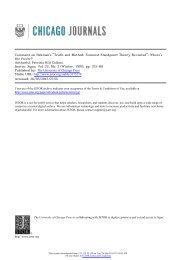
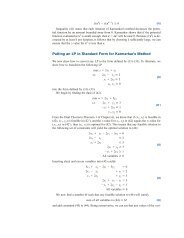
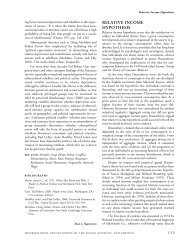
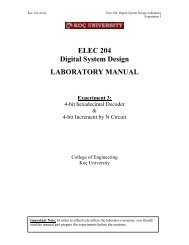
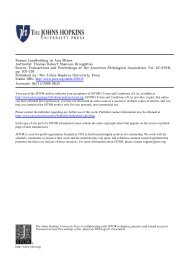
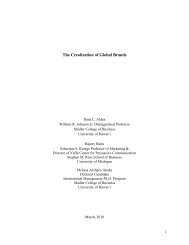
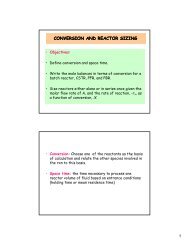
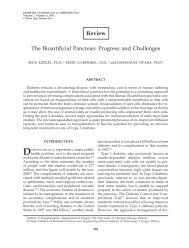
![]_[O](https://img.yumpu.com/10363126/1/190x138/-o.jpg?quality=85)
